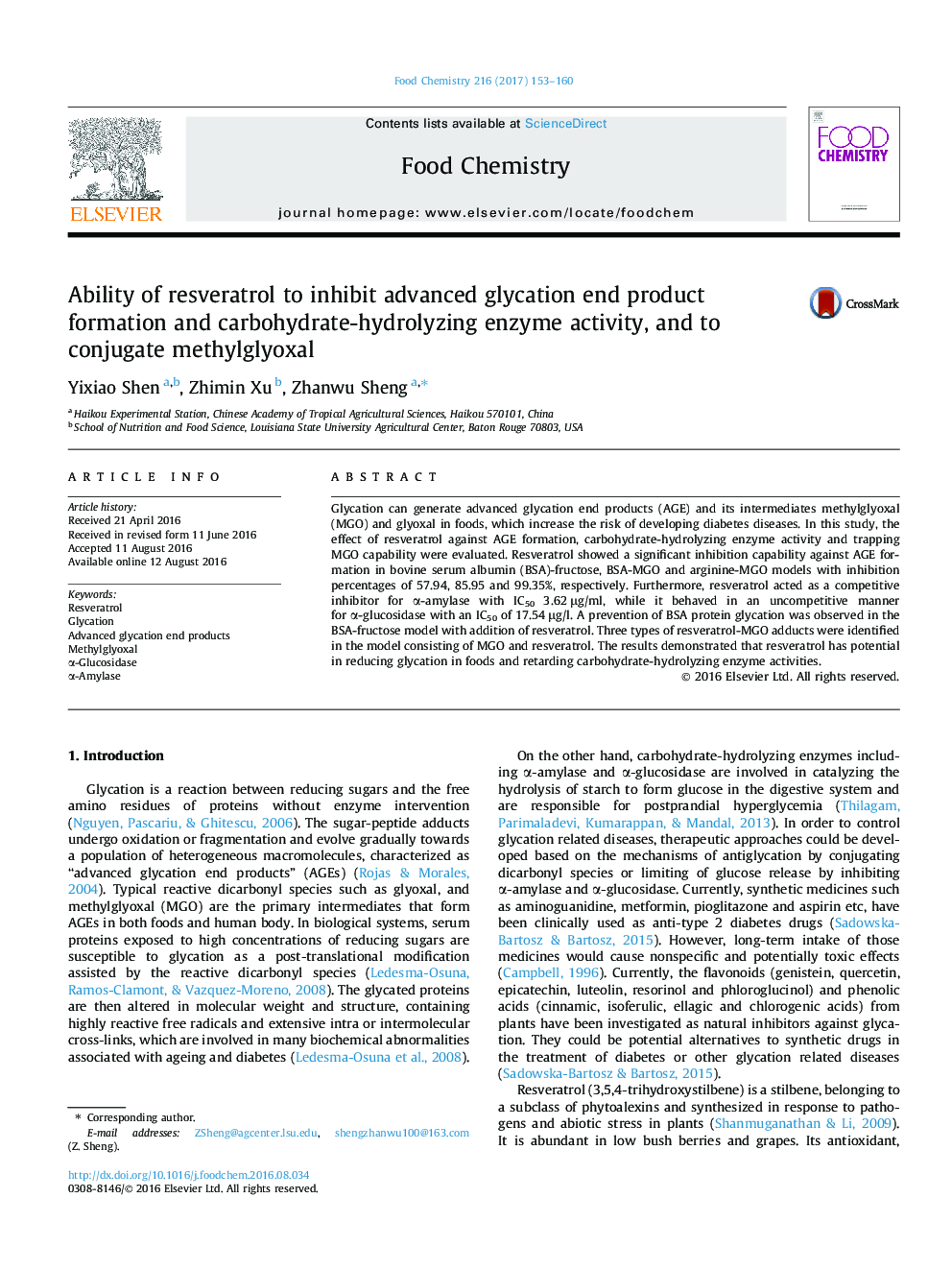| Article ID | Journal | Published Year | Pages | File Type |
|---|---|---|---|---|
| 1183061 | Food Chemistry | 2017 | 8 Pages |
•Resveratrol showed antiglycation ability in a dose dependent manner.•Resveratrol inhibited carbohydrate-hydrolyzing enzyme activity.•Resveratrol could trap MGO and form resveratrol-MGO adducts.•Resveratrol could be used as antiglycation agent and used in functional foods or drugs.
Glycation can generate advanced glycation end products (AGE) and its intermediates methylglyoxal (MGO) and glyoxal in foods, which increase the risk of developing diabetes diseases. In this study, the effect of resveratrol against AGE formation, carbohydrate-hydrolyzing enzyme activity and trapping MGO capability were evaluated. Resveratrol showed a significant inhibition capability against AGE formation in bovine serum albumin (BSA)-fructose, BSA-MGO and arginine-MGO models with inhibition percentages of 57.94, 85.95 and 99.35%, respectively. Furthermore, resveratrol acted as a competitive inhibitor for α-amylase with IC50 3.62 μg/ml, while it behaved in an uncompetitive manner for α-glucosidase with an IC50 of 17.54 μg/l. A prevention of BSA protein glycation was observed in the BSA-fructose model with addition of resveratrol. Three types of resveratrol-MGO adducts were identified in the model consisting of MGO and resveratrol. The results demonstrated that resveratrol has potential in reducing glycation in foods and retarding carbohydrate-hydrolyzing enzyme activities.
